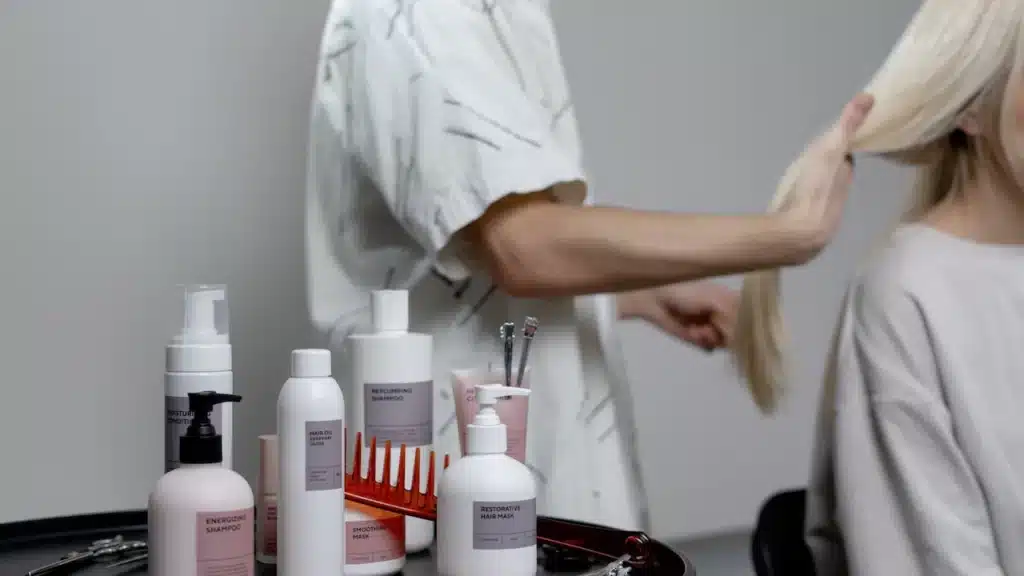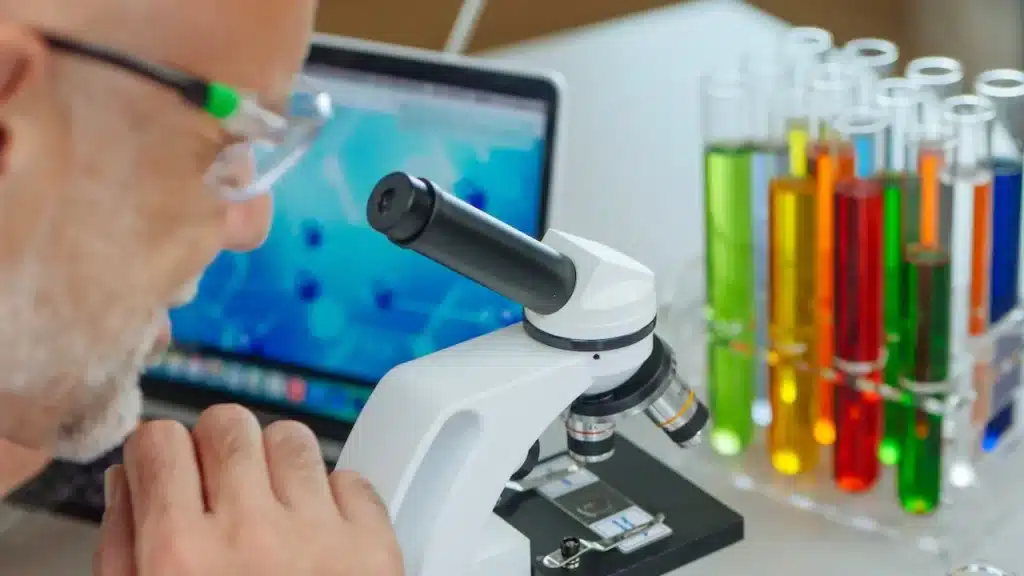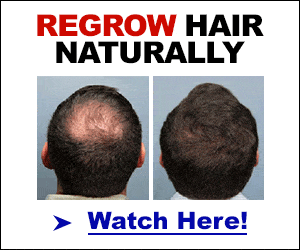Welcome to a comprehensive exploration of the intriguing realm of dandruff, where we unravel the mysteries surrounding the phenomenon of the “Biggest Dandruff Flake Ever.” This common scalp condition has piqued the curiosity of countless individuals, as it manifests in the form of pesky and unsightly flakes, often causing discomfort and social distress.
In this article, we will dive deep into the world of dandruff, shedding light on its causes, symptoms, and the array of treatment options available to combat it effectively. Moreover, we will debunk prevailing myths, providing you with accurate and reliable information to address this bothersome issue.
Best Food for Brain Recovery: Nourish Your Mind for Optimal Healing

Join us on this journey as we navigate through the complexities of dandruff and equip you with valuable insights to manage and prevent it, ensuring a healthier and more confident you. So, let’s embark on this quest to conquer the “Biggest Dandruff Flake Ever” and bid farewell to its unwelcome presence.
1. Understanding Dandruff: Causes and Symptoms of Dandruff Flake

Dandruff, a common scalp condition, can leave individuals scratching their heads in frustration. To effectively tackle this issue, it is essential to grasp the underlying causes and recognize the telltale symptoms.
Dandruff Flake Causes:
The primary culprit behind dandruff is a yeast-like fungus called Malassezia, which naturally resides on the scalp. When this fungus feeds on the excess sebum (oil) produced by the scalp and the dead skin cells, it triggers an inflammatory response. This leads to the shedding of skin in the form of white or yellowish flakes, commonly known as dandruff.
Several factors can contribute to the overgrowth of Malassezia and exacerbate dandruff:
Oily Scalp: Excessive oil production on the scalp provides an ideal environment for the fungus to thrive.
Dry Skin: Conversely, dry skin can also lead to flaking and contribute to dandruff formation.
Hair Products: Certain hair care products, especially those containing harsh chemicals, can irritate the scalp and worsen dandruff.
Medical Conditions: Conditions like psoriasis, eczema, and seborrheic dermatitis can mimic dandruff symptoms or coexist with them.
Dietary Factors: Although not fully understood, some evidence suggests that diet may play a role in dandruff development.
Stress: While not a direct cause, stress can exacerbate dandruff symptoms in susceptible individuals.
15 Best Fruits for Weight Loss: A Deep Explanation with Nutritional Values
Dandruff Flake Symptoms:
Dandruff manifests itself through a range of noticeable symptoms, which can vary in severity from person to person:
Flakes: The hallmark of dandruff is the appearance of white or yellowish flakes on the scalp and sometimes on clothing.
Itching: The presence of dandruff often triggers itching, leading to discomfort and a temptation to scratch the scalp.
Redness: In some cases, the scalp may become red and inflamed due to the irritation caused by dandruff.
Dry Scalp: Dandruff can cause the scalp to become dry, contributing to flaking.
Scalp Sensitivity: Individuals with dandruff may experience heightened sensitivity on the scalp.
It’s essential to differentiate between dandruff and other scalp conditions that share similar symptoms, as accurate diagnosis is crucial for effective treatment.
By understanding the causes and recognizing the symptoms of dandruff, individuals can take proactive steps to manage and alleviate this common scalp concern. Addressing the root causes and adopting appropriate treatment measures can lead to a healthier, flake-free scalp, allowing individuals to regain their confidence and comfort.

2. The Impact of Dandruff on Scalp Health

Dandruff, seemingly harmless at first glance, can have significant implications for the overall health of the scalp. Beyond the visible flakes and occasional itching, this common scalp condition can lead to a range of effects that should not be underestimated.
a. Inflammation and Irritation:
The presence of dandruff can trigger inflammation and irritation on the scalp. As the yeast-like fungus, Malassezia feeds on sebum and dead skin cells, it produces by-products that irritate the skin, leading to redness and discomfort. Continuous scratching in response to the itching can exacerbate the inflammation, causing further damage to the scalp.
b. Increased Scalp Sensitivity:
Individuals with dandruff often experience heightened sensitivity on the scalp. The constant presence of flakes and the inflammatory response can make the scalp more susceptible to external stimuli, leading to sensations of tenderness and discomfort.
c. Dryness and Scaliness:
While dandruff is often associated with flakiness, it can also cause dryness on the scalp. As the fungus disrupts the scalp’s natural balance, it can lead to dry and rough patches, making the scalp prone to further flaking and scaling.
d. Impaired Hair Follicles:
Persistent dandruff, especially when accompanied by frequent scratching, can harm the hair follicles. Scratching the scalp vigorously can damage the hair follicles, potentially leading to hair breakage and thinning.
e. Risk of Secondary Infections:
The constant presence of flakes and the compromised skin barrier due to inflammation can create an environment conducive to secondary infections. Bacteria may find their way into the irritated scalp, leading to additional discomfort and potential complications.
f. Social Embarrassment and Psychological Impact:
Dandruff’s visibility can be a source of embarrassment and self-consciousness for individuals. The fear of flakes becoming visible on clothing or shoulders during social interactions can lead to anxiety and avoidance behavior. This psychological impact can also affect an individual’s self-esteem and overall emotional well-being.
g. Cycle of Itch-Scratch:
The itchiness caused by dandruff can initiate a cycle of itch-scratch, wherein scratching provides momentary relief but can worsen the condition in the long run. Scratching damages the scalp further, leading to more inflammation and perpetuating the dandruff problem.
h. Impact on Hair Care Routine:
Individuals with dandruff may need to modify their hair care routine to accommodate the condition. They might have to use specific anti-dandruff shampoos or avoid certain hair products that exacerbate the issue.
Understanding the impact of dandruff on scalp health is crucial in motivating individuals to take proactive measures to address the condition. Early intervention, proper scalp care, and the use of appropriate treatments can help manage dandruff effectively and promote a healthier, more comfortable scalp. By addressing the underlying causes and acknowledging the potential consequences of dandruff, individuals can take steps toward achieving a flake-free and vibrant scalp.
Best Health Benefits of Nuts: Exploring the Nutritional Powerhouse
3. Debunking Myths about Dandruff Flakes

Dandruff, being a common scalp condition, has given rise to numerous myths and misconceptions over the years. It is essential to separate fact from fiction to better understand and effectively manage this pesky issue. Let’s debunk some prevalent myths about dandruff flakes:
Myth 1: Dandruff is Caused by Poor Hygiene
Contrary to popular belief, dandruff is not a result of poor hygiene. While keeping the scalp clean is essential, excessive washing or shampooing can actually worsen the condition. Dandruff is primarily caused by the presence of the yeast-like fungus Malassezia on the scalp, combined with various contributing factors such as oily or dry skin, hair products, and certain medical conditions.
Myth 2: Dandruff is Contagious
Dandruff is not contagious and cannot be transmitted from one person to another through direct contact. It is a common scalp condition that can affect anyone, regardless of age or gender. Each individual’s susceptibility to dandruff may vary based on their scalp’s unique characteristics and other factors.
Myth 3: Only People with Oily Scalps Get Dandruff
While excess oil production can contribute to dandruff, it is not limited to individuals with oily scalps. Both oily and dry scalps can experience dandruff. In fact, some anti-dandruff shampoos and treatments are formulated specifically for dry scalps to address the condition effectively.
Myth 4: Dandruff is Untreatable
Dandruff is a treatable condition, and various over-the-counter and prescription treatments are available to manage it. Anti-dandruff shampoos containing active ingredients like zinc pyrithione, ketoconazole, or selenium sulfide can effectively control the Malassezia fungus and reduce flaking and itching.
Myth 5: Dandruff Causes Permanent Hair Loss
While persistent scratching due to dandruff can harm hair follicles and lead to hair breakage, dandruff itself does not directly cause permanent hair loss. By addressing the underlying dandruff issue and refraining from vigorous scratching, potential hair damage can be minimized.
Myth 6: Stress is the Sole Cause of Dandruff
Stress can exacerbate dandruff symptoms, but it is not the sole cause. Dandruff is a multifactorial condition influenced by various factors, including genetics, diet, scalp health, and personal care routines.
Myth 7: Dandruff is Curable Overnight
Achieving a dandruff-free scalp may require patience and consistency with appropriate treatments. While some people may see improvements quickly, others might take longer to experience significant relief. Consistent use of anti-dandruff products and adopting a proper scalp care routine is crucial in managing dandruff effectively.
By debunking these myths, individuals can gain a clearer understanding of dandruff’s true nature and work towards effective solutions. Managing dandruff involves a combination of proper scalp care, targeted treatments, and a holistic approach to overall scalp health. Embracing evidence-based information allows individuals to make informed decisions and take control of their scalp’s well-being.
4. 10 Home Remedies for Dandruff Flakes

Dealing with dandruff? Before reaching for commercial anti-dandruff products, consider trying these effective and natural home remedies to tackle the pesky flakes and itching:
1. Tea Tree Oil:
Tea tree oil is renowned for its antifungal and antibacterial properties, making it a potent remedy for dandruff. Mix a few drops of tea tree oil with a carrier oil like coconut oil or olive oil, and gently massage it into your scalp. Leave it on for about 30 minutes before washing your hair.
2. Apple Cider Vinegar:
Apple cider vinegar helps restore the scalp’s pH balance, creating an unfavorable environment for the Malassezia fungus. Mix equal parts of apple cider vinegar and water and use it as a post-shampoo rinse. Be sure to avoid getting it in your eyes.
3. Aloe Vera:
Aloe vera’s soothing properties can alleviate scalp inflammation and itching. Apply fresh aloe vera gel directly to your scalp and leave it on for about 20-30 minutes before rinsing it off with water.
4. Coconut Oil:
Massaging warm coconut oil into your scalp not only moisturizes the skin but also helps combat dandruff. Leave the oil on your scalp overnight for the best results, and wash your hair the next morning.
5. Lemon Juice:
The natural acidity of lemon juice helps control dandruff and reduces excess oil on the scalp. Mix freshly squeezed lemon juice with water and apply it to your scalp. Leave it on for 5-10 minutes before rinsing thoroughly.
6. Baking Soda:
Baking soda acts as a gentle exfoliant, helping to remove dead skin cells and reduce flakiness. Wet your hair and then rub a handful of baking soda onto your scalp. Rinse thoroughly and follow up with a moisturizing conditioner.
7. Yogurt:
Yogurt is rich in probiotics and contains lactic acid, which can help restore the scalp’s natural balance. Apply plain yogurt to your scalp and leave it on for about 30 minutes before washing your hair.
8. Neem Oil:
Neem oil has powerful antifungal properties and can effectively combat dandruff. Mix a few drops of neem oil with carrier oil and massage it into your scalp. Leave it on for 30 minutes before washing your hair.
9. Fenugreek Seeds:
Soak fenugreek seeds overnight and blend them into a paste the next day. Apply the paste to your scalp and leave it on for 30 minutes before rinsing it off. Fenugreek seeds can help reduce scalp irritation and itching.
10. Olive Oil and Honey:
A combination of olive oil and honey can provide nourishment to the scalp and soothe dandruff. Mix equal parts of olive oil and honey and apply it to your scalp. Leave it on for 20-30 minutes before washing your hair.
Remember, consistency is key when using home remedies for dandruff. While these remedies can be effective for mild cases of dandruff, severe or persistent dandruff may require medical intervention. If your dandruff persists or worsens, consult a dermatologist for personalized treatment options.
5. Over-the-Counter Dandruff Treatments for the “Biggest Dandruff Flake Ever”

For individuals grappling with the challenge of managing the “Biggest Dandruff Flake Ever,” over-the-counter (OTC) dandruff treatments offer a plethora of effective solutions. These readily available products are specially formulated to address the underlying causes of dandruff, providing much-needed relief from persistent flakes and itching. Here are some common OTC dandruff treatments suitable for tackling the most stubborn dandruff:
1. Shampoos Containing Zinc Pyrithione:
Zinc pyrithione is a powerful antifungal agent, making it an ideal solution to combat the Malassezia fungus responsible for the “Biggest Dandruff Flake Ever.” These shampoos effectively target the fungus, alleviate scalp inflammation, and control excessive flaking. Consistent use of zinc pyrithione shampoos can significantly improve dandruff symptoms, including large and noticeable flakes.
2. Shampoos with Ketoconazole:
Ketoconazole, another potent antifungal ingredient, is highly effective in addressing dandruff caused by the stubborn Malassezia fungus. For those dealing with the “Biggest Dandruff Flake Ever,” ketoconazole shampoos can provide an intensive treatment option. Available both over-the-counter and by prescription, these shampoos offer a comprehensive solution to combat severe dandruff.
3. Shampoos Containing Salicylic Acid:
Salicylic acid, a keratolytic agent, is excellent for exfoliating the scalp and reducing the size of unsightly flakes. It promotes the shedding of dead skin cells, helping to create a healthier scalp environment. If the Biggest Dandruff Flake is accompanied by scalp scaling, salicylic acid shampoos can be particularly beneficial.
4. Shampoos with Selenium Sulfide:
Selenium sulfide shampoos are specifically designed to slow down the growth of the Malassezia fungus, effectively reducing the size and prevalence of large dandruff flakes. For those struggling with the “Biggest Dandruff Flake Ever,” these shampoos can offer much-needed relief from excessive flaking and itching.
5. Coal Tar Shampoos:
Coal tar shampoos are effective in slowing down the rate of skin cell turnover, which can be particularly helpful for individuals dealing with significant flakiness and scaling on the scalp. Moreover, the anti-inflammatory properties of coal tar shampoos can alleviate scalp redness associated with Dandruff Flake Ever.
When utilizing OTC dandruff treatments, it is essential to follow the product’s instructions meticulously. Regular usage, typically twice a week initially, is recommended, followed by maintenance as needed to sustain results. For those facing severe or persistent dandruff, seeking advice from a dermatologist is advisable. Dermatologists can offer personalized recommendations, including prescription-strength antifungal shampoos or other topical treatments to effectively manage the Dandruff Flake Ever.
Consistency and patience are key when using any dandruff treatment, especially when dealing with stubborn flakes. With the right approach and appropriate OTC products, individuals can find solace from the challenges posed by the “Biggest Dandruff Flake Ever,” ultimately leading to a healthier and flake-free scalp.
6. Professional Treatments for Severe Dandruff

For individuals grappling with severe and persistent dandruff that remains unresponsive to over-the-counter remedies, seeking professional treatments from a dermatologist is crucial. These specialized treatments offer advanced solutions to effectively address stubborn dandruff and its underlying causes. Here are some professional treatments commonly used for severe dandruff:
1. Prescription-strength Antifungal Shampoos:
Dermatologists may prescribe potent antifungal shampoos containing ingredients like ketoconazole, ciclopirox, or selenium sulfide at higher concentrations than those available in OTC products. These medicated shampoos can combat the Malassezia fungus more effectively, providing relief from severe dandruff and its symptoms.
2. Topical Steroids:
For individuals with inflammation and itching accompanying severe dandruff, topical steroids may be prescribed. These medications help reduce scalp inflammation and alleviate itching, promoting a healthier scalp environment.
3. Topical Immunomodulators:
Topical immunomodulators, such as pimecrolimus or tacrolimus, are used to regulate the immune response on the scalp. They are particularly beneficial for individuals with seborrheic dermatitis, a condition often associated with severe dandruff.
4. Prescription-strength Scalp Treatments:
Dermatologists can provide personalized scalp treatments containing a combination of active ingredients tailored to the individual’s specific needs. These treatments may include a blend of antifungal agents, anti-inflammatories, and keratolytic agents to effectively address severe dandruff.
5. Phototherapy:
In some cases, dermatologists may recommend phototherapy or light therapy for severe dandruff. Exposure to specific wavelengths of light can help regulate the growth of the Malassezia fungus and reduce inflammation on the scalp.
6. Oral Antifungal Medications:
For severe cases of dandruff, oral antifungal medications may be prescribed. These medications work from within the body to combat the fungus, offering a comprehensive approach to managing severe dandruff.
7. Scalp Peels:
Professional scalp peels involve the application of chemical exfoliants to the scalp, effectively removing dead skin cells and promoting a healthier scalp environment. Scalp peels can be beneficial for individuals with stubborn dandruff and scalp buildup.
8. Laser Therapy:
Laser therapy is a non-invasive treatment that targets the fungus responsible for dandruff while promoting a healthier scalp. It can help reduce inflammation and improve overall scalp health.
9. Prescription Medications for Underlying Conditions:
If dandruff is associated with an underlying medical condition such as seborrheic dermatitis or psoriasis, dermatologists may prescribe medications to address these conditions, which can alleviate severe dandruff symptoms.
When considering professional treatments for severe dandruff, it is essential to consult with a qualified dermatologist. Dermatologists can assess the specific causes and severity of dandruff and recommend the most appropriate treatment plan tailored to the individual’s needs. By seeking professional help, individuals can effectively manage severe dandruff and enjoy a healthier, flake-free scalp.
7. Preventing Dandruff: Healthy Scalp Care Tips

Dandruff prevention starts with adopting a proactive approach to scalp care. By incorporating these healthy scalp care tips into your routine, you can significantly reduce the risk of dandruff and maintain a flake-free and healthy scalp:
1. Regular Hair Washing:
Frequent hair washing is essential to remove excess oil, dirt, and dead skin cells from the scalp. Regular cleansing prevents the buildup of sebum, which can create an environment conducive to dandruff-causing fungi. However, avoid overwashing, as it can lead to scalp dryness and exacerbate dandruff.
2. Balancing Scalp pH:
Maintaining the scalp’s natural pH level is crucial for a healthy environment. Acidic shampoos or conditioners can help balance the pH and discourage the growth of the Malassezia fungus responsible for dandruff. Look for products specifically designed to support scalp health.
3. Avoiding Harsh Hair Products:
Hair care products containing harsh chemicals and sulfates can irritate the scalp and strip away its natural oils. Opt for gentle, sulfate-free shampoos and conditioners that promote a balanced and moisturized scalp, reducing the risk of dandruff.
4. Managing Stress:
Stress has been linked to dandruff flare-ups. Practice stress-management techniques such as meditation, yoga, or regular exercise to reduce stress levels. A calm mind contributes to a healthier scalp.
5. Balanced Diet and Hydration:
A well-balanced diet rich in vitamins, minerals, and essential fatty acids supports overall scalp health. Include foods high in antioxidants, such as fruits and vegetables, to promote a healthy scalp. Additionally, staying hydrated is vital to maintain skin and scalp moisture.
6. Proper Hair Drying:
Allow your hair to air dry whenever possible or use the lowest heat setting on your blow dryer. Excessive heat can lead to scalp dryness, making it more prone to dandruff.
7. Regular Scalp Massages:
Gently massaging your scalp improves blood circulation and stimulates the natural production of sebum. This helps in maintaining a balanced and moisturized scalp.
8. Avoiding Tight Hairstyles:
Avoid tight hairstyles that put excessive pressure on the scalp, as they can cause scalp irritation and contribute to dandruff. Opt for loose hairstyles to reduce scalp tension.
9. Protecting the Scalp from UV Rays:
Overexposure to the sun’s harmful UV rays can lead to scalp damage and dryness. Wear a hat or use sunscreen specifically designed for the scalp when spending time outdoors.
10. Regular Brushing and Exfoliation:
Brush your hair regularly to distribute natural oils and exfoliate the scalp gently. This helps prevent the accumulation of dead skin cells and promotes a healthy scalp environment.
By incorporating these healthy scalp care tips into your daily routine, you can create an environment that discourages dandruff and promotes overall scalp health. Remember that consistency is key, and maintaining good scalp hygiene can lead to a happier, flake-free scalp.
8. Lifestyle Factors and Dandruff

Certain lifestyle factors can influence the severity of dandruff:
1. Smoking and Dandruff: Smoking can worsen dandruff symptoms due to its impact on blood circulation.
2. Diet and Dandruff: A diet rich in unhealthy fats and sugars may contribute to dandruff.
3. Hydration and Dandruff: Dehydration can lead to dry skin and worsen dandruff.
4. Stress and Dandruff: High-stress levels can trigger or worsen dandruff flare-ups.
5. Exercise and Dandruff: Regular exercise can help reduce stress and improve overall scalp health.
9. The Impact of Dandruff on Mental Well-Being

Dandruff not only affects the scalp but also has a psychological impact on individuals. It can lead to:
1. Low Self-Esteem: Dandruff can make people feel self-conscious and ashamed of their appearance.
2. Social Anxiety: Fear of judgment may cause individuals to avoid social situations.
3. Performance Anxiety: Dandruff-related concerns may affect performance at work or school.
4. Constant Worry: Checking for flakes and trying to hide them becomes a preoccupation.
5. Depression: The emotional burden of dandruff can lead to mood swings and even depression.
6. Avoidance: People may avoid events and opportunities due to their dandruff.
7. Negative Body Image: Dandruff may contribute to a negative perception of one’s body.
8. Impact on Relationships: Intimate relationships may be affected by self-consciousness and avoidance.
Addressing dandruff’s physical symptoms and seeking emotional support can help improve mental well-being and overall quality of life.
10. Understanding Dandruff-Related Conditions

Dandruff can be linked to various scalp conditions, each with its own causes and symptoms:
1. Seborrheic Dermatitis: A chronic, inflammatory skin condition with red, flaky, and itchy areas on the scalp, face, and chest.
2. Psoriasis: An autoimmune condition causing thick, silvery scales on the scalp and other body parts.
3. Tinea Capitis (Scalp Ringworm): A contagious fungal infection leading to red, itchy patches, flaking, and hair loss.
4. Contact Dermatitis: Allergic reaction to hair care products, resulting in scalp redness, itching, and flaking.
5. Atopic Dermatitis (Eczema): A chronic skin condition with dry, itchy, and inflamed scalp and skin.
Folliculitis: Inflammation of hair follicles due to bacterial or fungal infection, leading to itchy bumps.
6. Allergic Reactions: Some people may experience allergic reactions to hair product ingredients, causing scalp irritation and flakes.
7. Scalp Acne: Similar to facial acne, scalp acne causes small bumps, with potential infection and flaking.
Identifying the specific scalp condition is crucial for targeted treatment. Consulting a dermatologist can help find relief from dandruff and related conditions, ensuring a healthier scalp.
11. The Role of Genetics in Dandruff.

Genetics plays a significant role in dandruff susceptibility. Certain genes can influence the production of oils on the scalp and the body’s immune response, affecting the likelihood of developing dandruff. Individuals with a family history of dandruff are more prone to experiencing this common scalp condition.
12. Dandruff and Hair Loss: Are They Linked?
Contrary to popular belief, dandruff does not directly cause hair loss. However, persistent scratching can damage hair follicles, potentially leading to hair thinning.
FAQs
1. Can dandruff be cured permanently?
Dandruff can be managed effectively, but for some individuals, it may be a recurring condition that requires continuous care.
2. Are there any side effects of over-the-counter dandruff shampoos?
Over-the-counter dandruff shampoos are generally safe, but some individuals may experience scalp irritation or dryness.
3. Can stress alone cause dandruff?
Stress can exacerbate dandruff symptoms, but it is not the sole cause.
4. Can dandruff be a symptom of an underlying medical condition?
In some cases, dandruff may be associated with underlying skin conditions or medical issues.
5. How often should I wash my hair to prevent dandruff?
The frequency of hair washing depends on individual scalp conditions, but washing every 2-3 days is generally recommended.

